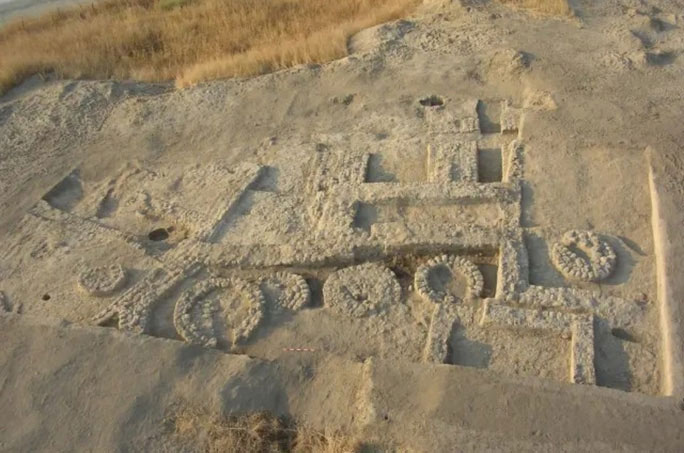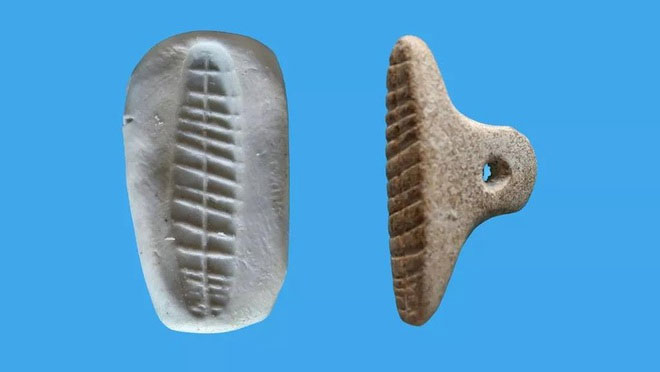Be amazed by something like modern times in a 7,000 year old village
An ancient village built in 5000 BC contains strange objects that show that the ancient society there developed to an unbelievable extent.
According to Live Science, the new discovery is seals used to seal goods - something normal in modern times, but "unbelievable" when appearing in an ancient stone age society, when writing was not yet available. Have!

A warehouse in the old village - (Photo: Yosef Garfinker).
"Similar forms of sealing are still used today to prevent tampering and theft. It turns out they were used by landowners and local administrators 7,000 years ago to protect property" - Professor Yosef Garfinker from the Hebrew University in Jerusalem, senior author of the study, said.

Ancient seal (right) and clay piece that acts as a modern seal - (Photo: Yosef Garfinker).
According to Archeology , the ancient seal was excavated in the mysterious "ghost village" Tel Tsaf in the Beit She'an valley of Israel. It is a Stone Age village but was built very elaborately, with an architectural structure that at first glance would seem more modern than several millennia.
People have found in the ancient village - which is believed to be the center of many trading activities - many objects that look like they are stamped. That's about 150 pieces of clay used to seal goods, with a stamped mark in the middle, exactly like the way we seal envelopes and packages today! If the package is secretly opened, the clay seal will break.
And finally, in a large stone building with several circular tanks that archaeologists believe was a warehouse, they found the seal and a piece of sealing clay apparently stamped from it.
The Jerusalem Post identified the seal as living evidence of complex trading and bartering activities and the intention to protect property rights of settlers in Israel millennia ago.
- The strange mystery of the village is 2cm higher each year
- Mysterious village of 2,000 people suddenly
- Top 10 most 'top' works of modern times
- Traces the 2,300-year-old village
- The unique villages in the world
- 15 villages as beautiful as fairy tales
- Invented in modern times but it killed people 5,000 years ago
- Timeless: Ruins of 'modern delights' in... 2,400-year-old tombs
- Cold with the most mysterious village in Italy
- Explore the 500-year-old craggy village
- The Benefits Of Using Technology When It Comes To Your American Laboratory
- Admire the cities of the world Old and Present
 Discovered an ancient centipede fossil 99 million years old
Discovered an ancient centipede fossil 99 million years old Discovered bat-like dinosaurs in China
Discovered bat-like dinosaurs in China Discovered a 200-year-old bronze cannon of the coast
Discovered a 200-year-old bronze cannon of the coast Discover 305 million-year-old spider fossils
Discover 305 million-year-old spider fossils